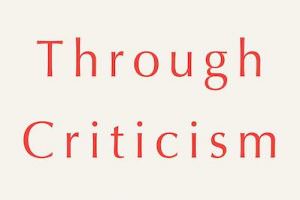Employers Can’t Require You to Be Happy, Uncle Sam Says
In a victory for free speech, the National Labor Relations Board ruled that employees of T-Mobile do not have to maintain what the company called a “positive work environment” at all times. "We can’t all be pie-eyed suck-ups who are eternally positive. Nor should we be," wrote The Guardian. (Caden Crawford / CC BY-ND 2.0)
"We can’t all be pie-eyed suck-ups who are eternally positive. Nor should we be," wrote The Guardian. (Caden Crawford / CC BY-ND 2.0)
“We can’t all be pie-eyed suck-ups who are eternally positive. Nor should we be,” wrote The Guardian. (Caden Crawford / CC BY-ND 2.0)
In a victory for free speech, the National Labor Relations Board ruled in April that employees of T-Mobile did not have to maintain what the company called a “positive work environment” at all times.
David Ferguson writes at The Guardian:
In its ruling, the NLRB concluded that workers have a right to address concerns about their jobs and that for businesses to require workers to be relentlessly positive all the time amounts to a stifling of free speech. Dissent and criticism, the board noted, are an essential rallying point for workers who want to address unfair working conditions or other workplace issues.
Studies of businesses and human psychology have shown us that in spite of our professed cultural love for optimists and a sunny, can-do attitude, the people who actually meet with success are those who approach life with a “defensive pessimism”: a willingness to embrace and factor in all of the ways that a plan can go wrong before they implement it. …
My twin brother used to break things for a living. He worked at a software startup that sold server platforms and it was his job to find out how the products would hold up under various kinds of strain, improper installation, user errors and other problems.
The design and marketing departments hated him because he was always taking their shiny new toys and then returning them as smoking, broken wreckage. It didn’t make him popular, but it was sound business practice. Addressing product failures and how to recover from them is what has brought us things like seatbelts, airbags and lifeboats on ships.
—Posted by Alexander Reed Kelly.
Your support matters…Independent journalism is under threat and overshadowed by heavily funded mainstream media.
You can help level the playing field. Become a member.
Your tax-deductible contribution keeps us digging beneath the headlines to give you thought-provoking, investigative reporting and analysis that unearths what's really happening- without compromise.
Give today to support our courageous, independent journalists.






You need to be a supporter to comment.
There are currently no responses to this article.
Be the first to respond.